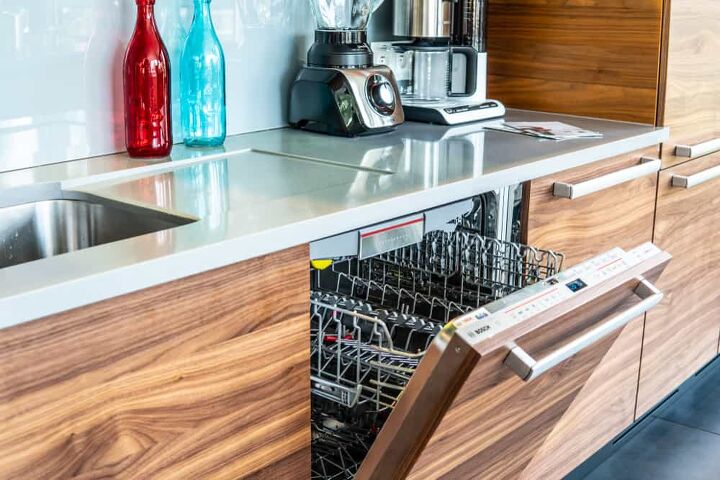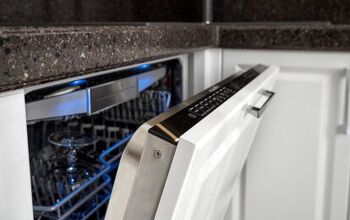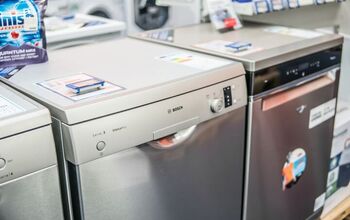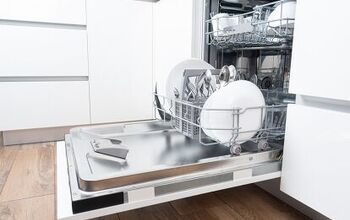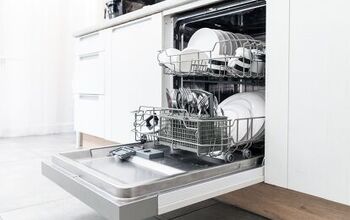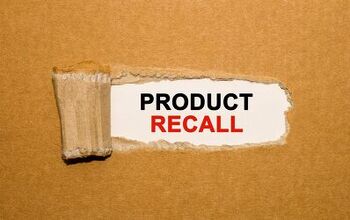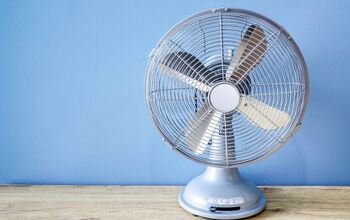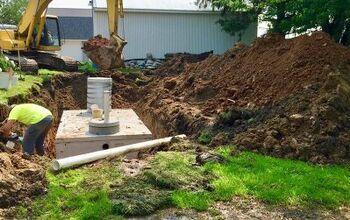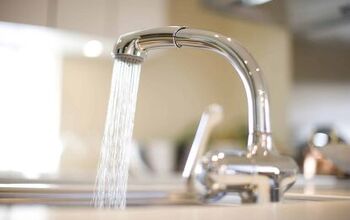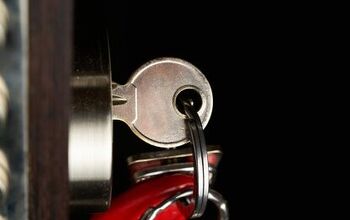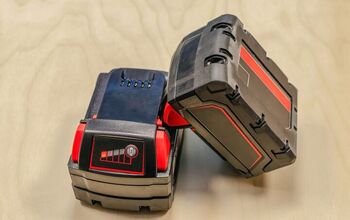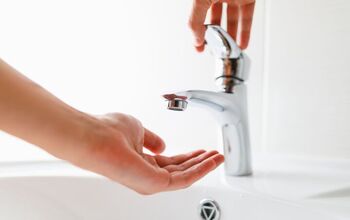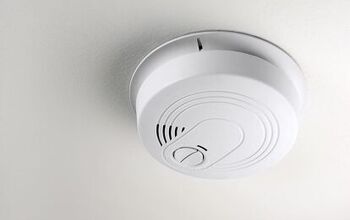How To Clean A Bosch Dishwasher (Quickly & Easily!)

Despite their status as one of the more popular brands for power tools, Bosch actually makes far more than that. As a matter of fact, they make a good deal of kitchen appliances as well. That includes dishwashers, which have become a favorite for homeowners.
From time to time, you will need to clean your Bosch dishwasher. It is a great way to remove hard water buildup, keep the spray arms free and clear, and prevent the filters from becoming clogged. To do this, you need to clean the components individually. If you want to help get rid of greasy residue, then simply add your cleaner to an empty dishwasher and run it on the longest, hottest cycle.
Do You Need a Maid Service?
Get free, zero-commitment quotes from pro contractors near you.

Why Do You Need to Clean Your Dishwasher?
On the surface, it may sound a bit absurd to clean your dishwasher. After all, isn’t the whole point of this machine to clean? What about it could possibly bear needing a good cleaning? The reason is quite simple.
The dishwasher is responsible for cleaning your dishes, but that does not it is immune to the food scraps and grime that can accumulate on your dishes. From time to time, excessive food scraps and debris can accumulate in the various components of the dishwasher.
Cleaning that excess food debris, grease, and soap scum are important for the effectiveness of the dishwasher. For starters, it is a great way to breed germs. Second of all, that buildup reduces the efficiency of your appliance. Third, there is the potential of damaged or broken components like the spray arm or the filter.
How to Clean Your Bosch Dishwasher
The good news is that cleaning your Bosch dishwasher is relatively straightforward and easy to do. Some applications may take a little more time than others, but no aspect is difficult. Even if you were to do a total cleaning, the time required of you would likely be no more than 15 minutes.
Furthermore, there are a few different components that could stand cleaning. Here are the steps needed to clean all of those components, leaving your dishwasher running effectively for a long time to come.
Step 1: Running a Clean Cycle
The simplest way to get your dishwasher cleaner and even smelling better is to run a clean cycle. From time to time, you may notice the dishwasher isn’t cleaning quite as well. It may even be giving off a less than pleasant smell.
The clean cycle is a simple way to reduce or eliminate smells, clean the main compartment, and give the filter and spray arms a good wash. The best part is that it is really quite simple to do.
All you need to do is add a box of Bosch dishwasher cleaner. If you don’t have any available, your favorite dish detergent should work just fine. Add it to the bottom of the dishwasher and then set the dishwasher to run on the longest, hottest cycle.
In the case of light mineral and grease buildup, it should be enough to get your dishwasher smelling great again. If that doesn’t do the trick, you may have to focus on the individual components like the filter and spray arm.
Step 2: Cleaning the Filter
The filter is just as it sounds. It collects the loose food scraps that get leftover on your dishes. That is why it is suggested that you rinse your dishes before placing them into the dishwasher. The more food scraps and leftover debris, the harder it is on the filter.
Cleaning the filter on a regular basis is recommended. You can find it at the bottom of your dishwasher. Removal is pretty simple, though you can always consult the manual if you aren’t certain. If you don’t have the manual on hand, a cursory Google search should turn up what you are looking for.
To clean the filter, simply run it under warm water, scrubbing it with a soft brush and some soap. It is important that you use a soft bristle brush as anything harder could potentially damage the filter. In the event the filter has become damaged, you should replace it.
Step 3: Cleaning the Spray Arm
Another reason why your dishwasher may not be quite performing up to standard is a clog in the spray arm. The spray arm is at the bottom of the dishwasher and rotates, spraying water to clean the dishes during the cycle.
When the spray arms get clogged or blocked, the dishwasher is not able to effectively spray the dishes. The result is an increase in grease and food buildup, as well as dishes that simply do not come clean.
Cleaning the spray arm is a little tedious but quite simple. All you need to do is get into the holes with a toothpick. A toothpick has a fine point that won’t dig into the plastic of the spray arm assembly or do any damage.
When you are done digging out the food and debris, give the spray arm a rinse under warm water. Keep at it until you feel like the food scraps have been removed.
Step 4: Removing Hard Water Buildup
Depending on the area in which you live, there may be deposits of hard water and a limescale buildup in your dishwasher. The telltale sign is that your glasses appear foggy and cloudy even after cleaning. Hard water generally isn’t a big deal but it can be unsightly and potentially damage the dishwasher if left unchecked.
To remove that buildup of limescale and hard water deposits, you need a Bosch descaler. To keep those deposits and buildups at bay, you should use the descaler a few times a year.
To effectively descale the dishwasher, run it on the hottest, longest wash cycle with the dishwasher totally empty. That means no detergent at all. Then, add it to the bottom of the dishwasher and run at the longest, hottest cycle. When that cycle is finished, run another wash cycle to rinse away the now freed-up mineral deposits.
Step 5: Cleaning the Exterior
Unfortunately, the interior of your dishwasher is not the only part that can get dirty. Depending on how messy you are in the kitchen, you will more than likely face spots or stains on the dishwasher’s exterior from time to time.
The good news is that cleaning the exterior is quite simple. All you need is a little lukewarm water, a soft cloth, and some mild soap. Start by wiping the door seals thoroughly. Even if you can’t see it, grime has likely crept into the seals.
When you are don there, move on to the door. Wipe in the direction of the door’s steel grain. Make sure you condition the stainless steel using Bosch’s stainless steel conditioner. Do not use this conditioner on any of the black steel, control markings, or the logos as it could wear and damage them.
Do You Need a Maid Service?
Get free, zero-commitment quotes from pro contractors near you.

Related Questions
Now that you have a pretty good place to start when cleaning your dishwasher, you may still have questions. Here are some of the most commonly asked questions users have about their Bosch dishwasher.
How Often Should I Clean My Dishwasher?It is important that you stay current with cleaning your dishwasher. Not only will it help to mitigate any unpleasant smells, but it will ensure that your dishwasher runs effectively and efficiently for a long time to come.
A good rule of thumb is that you should clean your dishwasher once every 3-6 months or so. It really depends on the usage level of your dishwasher. If you are using it a couple of times per week, skew closer to that 3 month period just to be safe.
You can start by simply running a cleaning cycle and seeing how it goes. So long as there isn’t excessive buildup, it should do the trick. If that does not seem to be doing quite enough, try cleaning the spray arm and filter separately.
A little bit of soap and warm water will go a long way towards keeping your Bosch dishwasher at peak operating efficiency.
Can I Use Vinegar to Clean my Bosch Dishwasher?Not everyone is in favor of using chemicals to do their cleaning. So, when you want to avoid a commercial cleaner, what household alternatives are there? Can you use vinegar to perform a dishwasher cleaning?
The short answer is that, yes, you can clean your dishwasher using vinegar. The process for cleaning your dishwasher is basically the same, too. Just pop out the filter by hand and rinse it off to remove any excess food particles that may be hanging around.
When you are ready to go, fill a dishwasher-safe container with just one cup of white vinegar. Place the container in the center of either of the racks and start the cycle. White vinegar and its natural acidic properties are a great way to clean your dishwasher.
The vinegar works to dissolve any of the mineral buildups that may be plaguing your dishwasher. Further, it breaks down light food buildup in the spray arm and filter, leaving your dishwasher ready to roll at full capacity again.

Ryan Womeldorf has more than a decade of experience writing. He loves to blog about construction, plumbing, and other home topics. Ryan also loves hockey and a lifelong Buffalo sports fan.
More by Ryan Womeldorf



